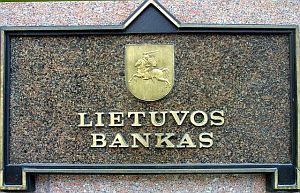Analytics, Baltic States – CIS, Economics, GDP, Investments, Lithuania, Markets and Companies
International Internet Magazine. Baltic States news & analytics
Friday, 26.04.2024, 21:36
Bank of Lithuania projects 2.9% GDP growth in 2014
 Print version
Print version |
|---|
The Bank of Lithuania projects a GDP growth of 2.9% this year and 3.3% next year, the Bank of Lithuania said.
"The economy, driven by domestic demand, is still growing quite rapidly; however, the future prospects are evaluated much more carefully – primarily due to deteriorating external trade conditions in the East, especially the trade restriction with Russia, which has come into effect," says Raimondas Kuodis, Deputy Chairman of the Bank of Lithuania.
The Bank of Lithuania's economists decreased the 2014 GDP growth projection, compared to earlier data, by 0.4 p.p., while for 2015 – by 0.3 p.p.
The trade restrictions that came into effect in August of this year will impact about a fifth of Lithuania's export that is sent to Russia: its value amounts to slightly more than LTL 3 billion (EUR 869 million) annually, or 4% of all of Lithuania's export. Although this is a fairly significant share of exports, only a fourth of this export accounts for Lithuanian-origin goods, mostly agricultural and food products. The other part – three fourths – consists of re-export; its added value is relatively small. Assessments show that the trade restrictions with Russia will have a negative impact of 0.4 p.p. on Lithuania's real GDP growth. On the other hand, it is expected that the EU's economic development will gradually recover, although both private consumption and investment will increase less than this year – thus, in 2015 the GDP growth will be more rapid than this year.
Due to the less-than-expected price growth recently, the inflation projection was decreased. Currently the average annual inflation projection has been decreased by 0.5 p.p. (to 0.4%), next year's – by 0.3 p.p. (to 1.2%).
"Inflation was suppressed by cheaper natural gas and heating in the large cities. Positive inflation is supported only by food prices that are larger than last year," says Ruta Rodzko, Director of the Economics and Financial Stability Service at the Bank of Lithuania.
According to her, the trends for global commodity prices and inflation in the euro area allow us to believe that inflation in Lithuania will remain low.








 «The Baltic Course» Is Sold and Stays in Business!
«The Baltic Course» Is Sold and Stays in Business!

